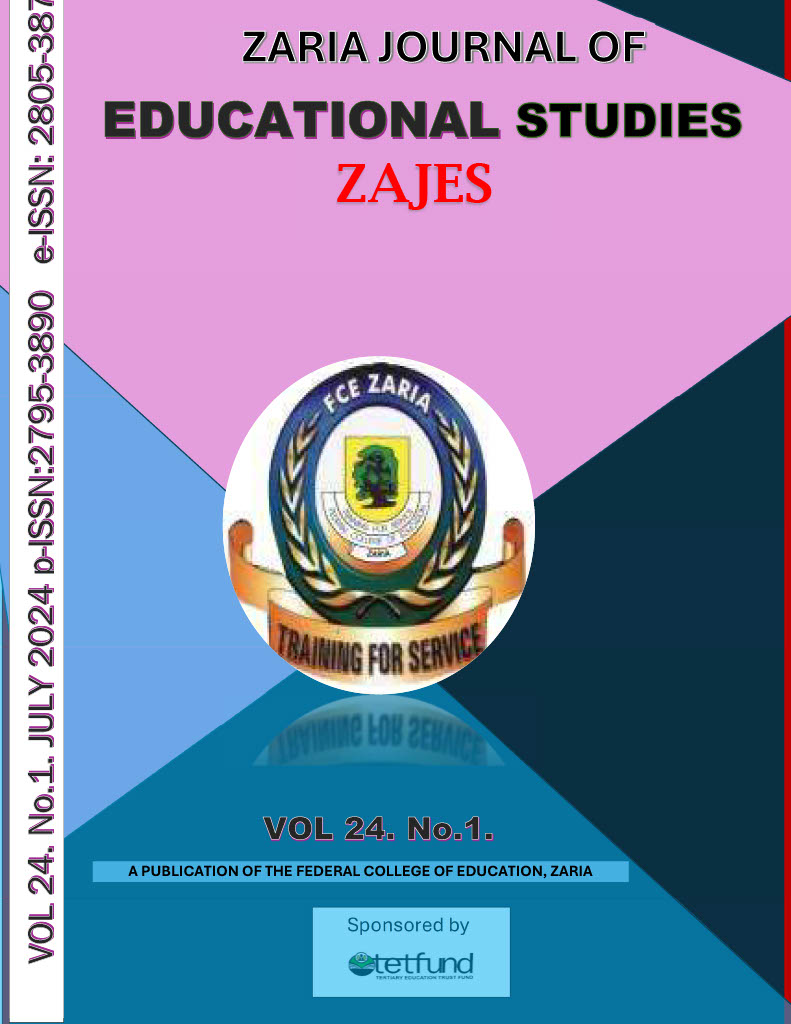Impact of Advisor-Advisee Policy on the Academic Performance of Business Education Students In Federal College of Education (FCE), Zaria
Keywords:
Advisor-advisee policy, Academic performance, Business Education, Students, Federal College of Education, ZariaAbstract
This study examined the impact of the advisor-advisee policy on the academic performance of Business Education students at the Federal College of Education (FCE), Zaria. The study had three research objectives: evaluating the implementation of the advisor-advisee policy within the business education program at FCE, Zaria; analyzing the relationship between advisor-advisee interactions and the academic performance of business education students in FCE, Zaria; and identifying any challenges or barriers in the implementation of the advisor-advisee policy and their potential impact on students' academic performance at FCE, Zaria. Research questions were also developed to guide the study. The research design used was a descriptive survey. The study population consisted of all 408 NCE students in the Business Education Department of the Federal College of Education, Zaria. A purposive sample of 100 students was selected proportionately using simple random sampling. Data was collected using a questionnaire structured with a four-point rating scale to measure students' perceptions of their advisor-advisee relationships and their influence on academic performance. The mean was used for data analysis. Preliminary findings indicate that the advisor-advisee policy at FCE, Zaria, was viewed positively by the students. Students reported improved academic performance, a clearer understanding of program requirements, and increased satisfaction with their college experience. However, there were some challenges, such as the unavailability of some advisors and the lack of diverse guidance methods. The research concluded that the advisor-advisee policy in the Business Education Department of FCE, Zaria has a positive influence on the academic performance of Business Education students. The research provides recommendations for improving the advisor-advisee relationship to enhance academic performance, including reviewing and updating the advisor-advisee policy to provide clear guidelines for both advisors and advisees. This should address issues such as advisor availability, meeting frequency, and the provision of resources for effective advising.

